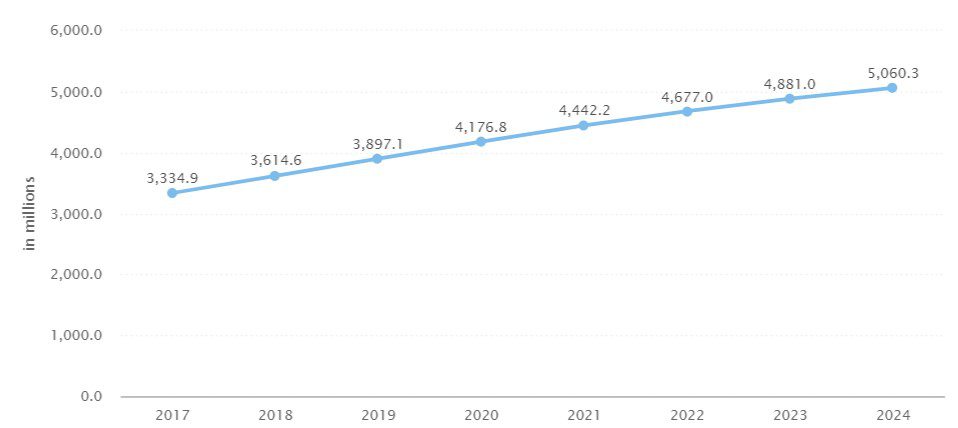
Click to learn more about author Hiren Dhaduk.
Natural Language Processing (NLP) is defined as the automatic manipulation of natural languages, such as speech and text, by using software or any programming language.
It is a branch of artificial intelligence that deals with the interaction between humans and computers using natural language. In short, the objective of NLP is to decipher, read, understand, and make sense of human words.
Some global companies, such as SoundHound, Dialogflow, TaskUs, and Semantic Machines, already have used NLP to make communication easier through voice-based AI and conversational intelligence technologies.
As a business tool, NLP helps to drive better decision-making by applying computer intelligence. It also identifies hot discussion topics and consumers’ interest charts. For instance, marketers use sentiment analysis for consumer insights regarding brand preference.
In this article, we will be learning about:
- Benefits of NLP
- Everyday practical examples of NLP
- NLP use cases
- What makes NLP significant to language processing capabilities
Let’s get started!
Benefits of NLP
There are millions of gigabytes of data generated by social websites, web pages, and blogs. Many companies gather all this data for understanding users and their passions and for making reports and adjusting business plans accordingly.
Suppose a person likes traveling and is regularly searching for a holiday destination. Such searches are used to provide that person with relevant advertisements by online hotel and flight-booking apps.
Search engines are not the only implementation of NLP.
There are other benefits:
- NLP helps in spam detection to keep unwanted emails out of your inbox. Programs like Outlook and Gmail use it to sort messages.
- It also helps job recruiters sort through resumes to hire qualified candidates.
Now let’s have a look at everyday natural language processing examples.
Everyday Natural Processing Examples
With NLP, there are several successful implementations with search engines like Google and Yahoo; social websites like Facebook’s news feeds; speech engines like Apple Siri; and spam filters. To know more about these examples, let’s kick things off.
- Semantic-based Search
Semantic-based search applications of NLP include figuring out a shopper’s intent and quickly bringing to a consumer’s attention relevant products located deep in a merchant’s online product catalog. Understanding shoppers’ intent dramatically improves visibility of these items. Shoppers get relevant results, even when using their unique search queries.
By understanding the shopper’s intent, semantic search dramatically improves visibility to products located deep in a merchant’s online product catalog. On average, websites with a semantic-based search bar have only a 2% shopping cart abandonment rate compared to a 40% abandonment rate reported by sites that feature a text-based search bar.
- Social Media Listening
Social media listening has become a vital tool for e-retailers who want to understand consumer shopping habits, predict product demand, and monitor trends to target marketing messages. Every day around the world, 1.4 billion people log on to Facebook, 500 million tweets are sent, and 95 million photos are shared on Instagram.

This data allows companies to track, manage, and analyze billions of ever-changing data points. This way, companies make sense of all this information and use it to make decisions about their businesses.
- Smart Product Recommendations
eCommerce businesses that continually engage with their visitors can drastically reduce the rate of shopping cart abandonment and encourage people to buy products that exactly fit their needs. The graph below shows that product recommendations account for one-third of eCommerce revenues and improve cart abandonment rates by 4.35%.

What Makes NLP Significant to Language Processing Capabilities
NLP helps systems analyze data faster: Computers and systems must be able to understand a large volume of language data in order to communicate with their human counterparts Machine learning algorithms can analyze and understand more language data than humans. This is because they can learn from the patterns found in stored data.
NLP helps bring semantic understanding to languages: NLP systems were initially developed to help bring semantic understanding to languages. Hence, communication between humans and machines resulted in logical and positive interactions. NLP systems help resolve confusing, ambiguous language by adding structure to the data they receive.
Overall, NLP systems help resolve confusing and ambiguous language by adding structure utilizing speech recognition and text analysis to the data they receive.
Some Areas That Leverage Natural Language Processing Technology
1. Chatbots
The use of chatbots in maintaining business workflow is considerable and beneficial for every Industry. Gartner has predicted that chatbots will account for 85% of customer interactions as of this year. Chatbots are concerned with how technology meaningfully interprets and acts on human language inputs.
NLP, when paired with voice recognition technology, can make chatbots smarter. Chatbot interactions nowadays can be easily confused with human interactions because they are intelligent and also can recognize human emotions.
- NLP helps chatbots analyze, understand, and prioritize complex questions.
- It also enables bots to respond to customer queries faster than a human being. The faster responses help in building customer trust and more business.

eCommerce
With the help of NLP, machines can easily pick out what phrases and words are generally used by humans while searching on a particular product on any ecommerce website. NLP helps in customizing the searches for users using search engines. The system finds what the user is exactly searching for by using its understanding of language and sentence structure. It also detects patterns and creates links between messages to discover the meaning of unstructured text.
When it comes down to NLP use cases (smart chatbots, spam filters, intelligent virtual assistants, etc.), this technology is being used heavily on the web. According to a report from Statista, “the number of users accessing e-commerce websites is expected to grow 5,060.3 million by 2024.”

Here’s why it makes complete sense to use NLP while building an eCommerce website with languages such as Python and Node.js: They have many libraries that make implementation easier.
4. Sentiment Analysis
A classic example of NLP, sentiment analysis can help estimate how customers feel about the brand when it comes to adjusting sales and marketing strategy. This technology is also known as opinion mining and is capable of analysing news and blogs and assigning a value to the text (positive, negative, or neutral). NLP algorithms enable you to identify emotions such as happy, annoyed, angry, and sad. In addition, a sentiment analysis tool increases customer loyalty, drives business changes, and achieves an appropriate return on sales and marketing investments.
5. Hiring & Recruitment
By utilizing NLP, HR professionals can significantly speed up candidate searches, filtering out relevant resumes and creating bias-proof and gender-neutral job descriptions. By using semantic analysis, NLP-based software helps recruiters to detect candidates that meet a job’s requirements. Textio is a real example of using semantic categorization to tweak job descriptions in a way to maximize the number of job applicants.
Closing Thoughts
In this article, we have come to understand NLP and its use case implementations like chatbots, e-commerce, healthcare, hiring, and so on in various industries. With an unprecedented increase in the adoption rate of NLP, it’s safe to assume that these uses will keep increasing in the future. It’s essential to take advantage of NLP in this competitive world as it can greatly strengthen customer service, accelerate time to market, and boost business revenue.
